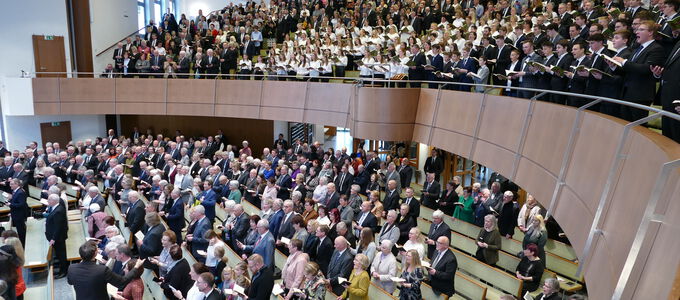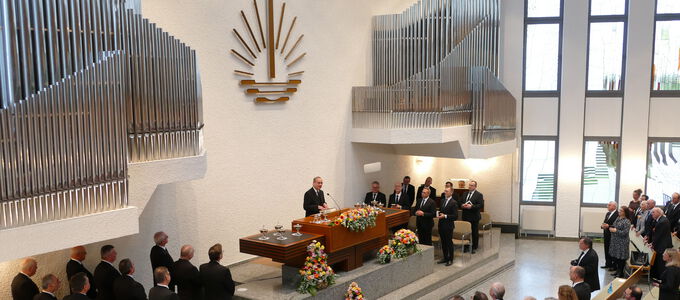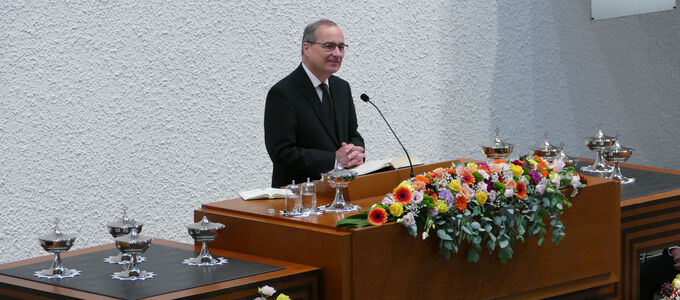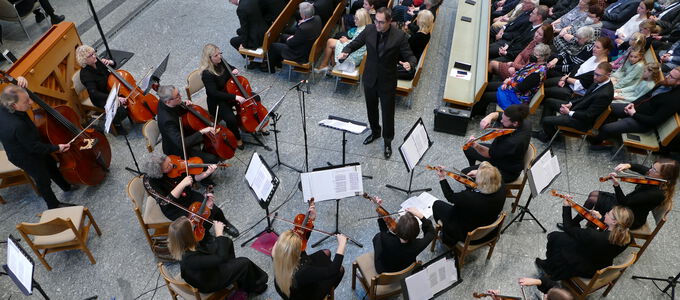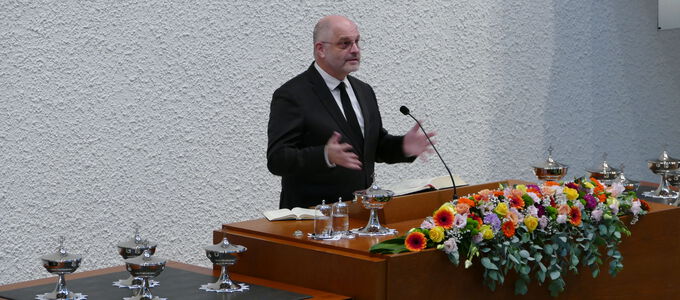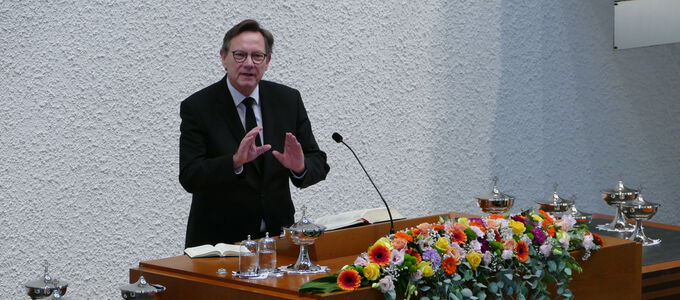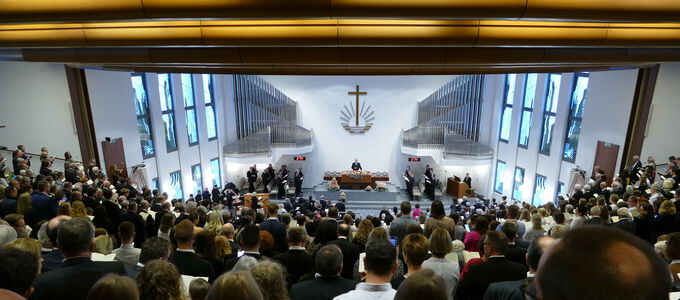Faith, love, and hope – work, labour, and patience
“This is an exciting programme, isn’t it?” This is how Chief Apostle Schneider ended his latest sermon in Fellbach in Germany. And the points in this programme? These are the work of faith, the labour of love, and patience of hope.
He based this divine service on 15 January 2023 on 1 Thessalonians 1: 2–3: “We give thanks to God always for you all, making mention of you in our prayers, remembering without ceasing your work of faith, labour of love, and patience of hope in our Lord Jesus Christ in the sight of our God and Father” (1 Thessalonians 1: 2–3).
The biblical context
Paul stayed in Thessalonica for a few weeks to preach the gospel and establish a church. This was so successful that quite a few of the leading women were convinced and joined the church. This in turn angered the Jews. They went to the market and hired some thugs to get rid of Paul. They could not find Paul though because he had gone into hiding and then fled Thessalonica.
“And yet the congregation grew in faith. The members did not only remain faithful, but they grew in the faith and a true and faithful congregation developed in Thessalonica. And that is why Paul is grateful,” Chief Apostle Schneider explained. “He speaks of the work of faith. Work of faith, labour of love, and patience of hope.”
Our work of faith
“What is this faith?” the Chief Apostle asked. “This faith is, of course, faith in Jesus Christ,” he reminded the congregation. “We believe in God as Jesus Christ represented Him to us: the God of love, of grace, and of mercy.” He went on to say that those who believe in Jesus Christ believe in the resurrection. “Otherwise,” he continued, “the whole thing makes no sense at all.”
This, however, then also has very concrete effects. Faith, he continued, goes hand in hand with a profession of faith. “We believe in the triune God, in the mission of the Apostles, in the ministry, in the sacraments.” The work of faith now means that this faith is put into practice in a specific way: “I believe in it and I act in accordance with it.”
Our labour of love
The love that Paul mentions is a reference to the nature of God, Chief Apostle Schneider explained. “It refers to the relationship that exists between God the Father, the Son, and the Holy Spirit. And this is the fellowship that God wants to incorporate us into out of love.” Through the rebirth out of water and the Spirit this love has already been poured into our hearts. A heart where this love can unfold longs for fellowship with God and then this love begins to work.
“What does this work consist of?” the Chief Apostle asked. We make an effort to discard everything that could prevent us from having perfect fellowship with God. He went on to say that this kind of work requires a continuous effort. And then he explained that the more we discover and recognise Jesus Christ, and the more we know about Him, the more we will realise that certain things are unfitting and inappropriate... certain perceptions, characteristics, whatever you want.
This love also prompts us to wish our neighbour that he or she can have fellowship with God: “We want others to find their way to God and help them follow this path. Let us comfort, strengthen, help, and pray for them.” It is therefore not enough to only make sure that we ourselves receive blessings or can experience a divine service. Love urges us to open up the same opportunity for our neighbour. Without expecting anything in return, and regardless of success or failure.
“Work is not only a struggle and a permanent effort, it is also something that makes you tired,” Chief Apostle Schneider said. Labours of love automatically make you tired. The Chief Apostle said that it is quite a challenge for people to constantly work on themselves. When we do, we notice, “We are still far from the example of our Lord and Master Jesus Christ in serving our neighbour, especially when we don’t succeed or if there is no reaction or return of any kind. Over time this is tiring. Those who truly love grow weary in the process.” Those who really want to love like Jesus Christ cannot do so in and of themselves. “They can only do it with the help of God, and this they receive through the word of preaching, Holy Communion, and fellowship.”
Our patience of hope
Last but not least, hope is a daughter of faith and love, the Chief Apostle said. “We believe that God wants to have fellowship with us and we long for it.” This hope always points to the future, he added. “And when things are particularly bad, let us remember that we are future-oriented. Hope is to have trust and confidence that we will receive more than all that we have lost here.”
Hope then also points to grace, knowing that we cannot accomplish this ourselves. According to Paul, however, this hope also requires patience. The Chief Apostle described this in his sermon as follows: “This hope gives us the ability to continue to believe, to continue to work, to continue to serve, and to continue to love despite all the difficulties and trials. That’s patience.”
Hope and joy go hand in hand. So hope is the joyful expectation of what one longs for, with the confidence of getting it. “We always have reason to rejoice, even in the worst of times, because we know that soon our Lord will come, the resurrection is imminent.”




